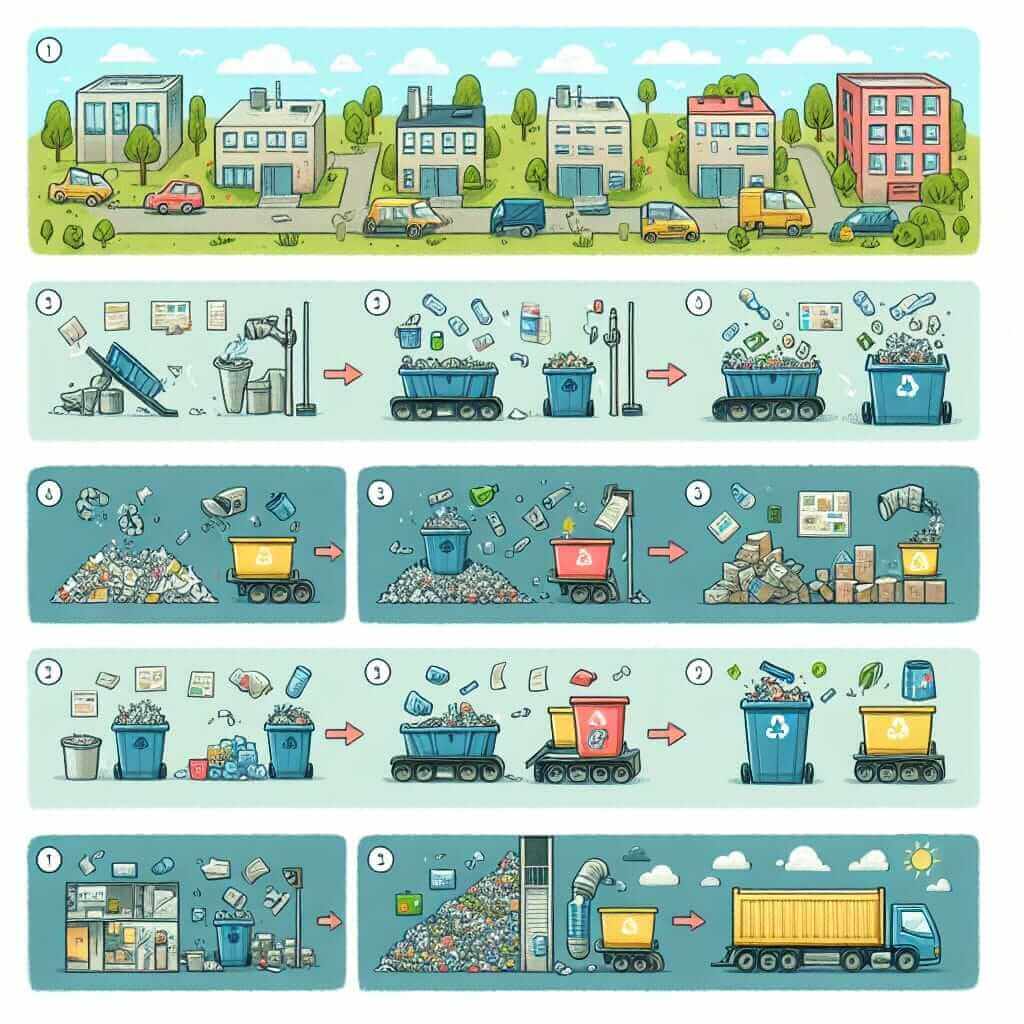“The importance of recycling programs” is a common topic in IELTS Writing Task 2, particularly within the realm of environmental issues. Understanding this keyword and its related concepts is crucial for achieving a high band score.
Here are some potential IELTS Writing Task 2 questions related to this keyword:
- Some people believe that recycling programs are essential to protecting the environment, while others argue that there are more effective ways to address environmental problems. Discuss both views and give your own opinion.
- Many countries are facing increasing challenges in managing their waste. To what extent do you agree that recycling programs are the most effective solution to this problem?
- Recycling programs are becoming increasingly popular in many parts of the world. What are the benefits of recycling, and what are the challenges involved in implementing effective recycling programs?
Sample Essay: Recycling Programs and Environmental Protection
Question: Some people believe that recycling programs are essential to protecting the environment, while others argue that there are more effective ways to address environmental problems. Discuss both views and give your own opinion.
Answer:
The increasing strain on our planet’s resources has sparked considerable debate about the most effective ways to mitigate environmental damage. While some advocate for recycling programs as a crucial solution, others contend that alternative approaches are more impactful. This essay will examine both sides of this argument before presenting my own perspective.
Proponents of recycling programs emphasize their crucial role in reducing waste and conserving natural resources. By diverting materials like paper, plastic, and glass from landfills, recycling lessens the demand for raw materials. This, in turn, minimizes the environmental degradation associated with extraction and processing. Furthermore, recycling reduces the amount of waste sent to landfills, which are often overflowing and contribute to soil and water contamination.
Conversely, critics argue that recycling alone is insufficient to address the complexities of environmental problems. They point out that the process itself consumes energy and can generate pollution. For instance, transporting, sorting, and reprocessing materials require significant energy inputs. Moreover, the effectiveness of recycling hinges on public participation and the availability of adequate infrastructure, both of which can be challenging to secure. Some argue that focusing on reducing consumption and promoting sustainable production practices would be more impactful in the long run.
While alternative solutions are undoubtedly important, I firmly believe that recycling programs remain an indispensable component of any comprehensive environmental strategy. The benefits of conserving resources, minimizing waste, and reducing pollution are undeniable. However, to maximize their effectiveness, governments and industries must invest in developing more efficient recycling technologies and promoting greater public awareness about responsible consumption and disposal practices.

Word Count: 280 words
Notes on the Essay:
- Structure: The essay follows a clear structure, addressing both sides of the argument before presenting a balanced opinion.
- Vocabulary: The essay utilizes a range of vocabulary related to the environment and recycling, such as “mitigate,” “conserving,” “degradation,” “contamination,” “consumption,” and “sustainable.”
- Grammar: The essay demonstrates good grammatical control, using a variety of sentence structures and avoiding common errors.
Difficult Vocabulary:
- Mitigate (verb) /ˈmɪt.ɪ.ɡeɪt/: To make something less harmful, unpleasant, or bad.
- Conserving (verb) /kənˈsɝːvɪŋ/: To protect something from harm or destruction.
- Degradation (noun) /ˌdeɡ.rəˈdeɪ.ʃən/: The process in which the quality of something is damaged or destroyed.
- Contamination (noun) /kənˌtæm.ɪˈneɪ.ʃən/: The process of making something dirty or poisonous.
- Sustainable (adjective) /səˈsteɪ.nə.bəl/: Able to continue over a period of time without causing harm to the environment.
Conclusion
Mastering the topic of “The importance of recycling programs” is crucial for IELTS Writing Task 2 success. By understanding the key arguments, utilizing relevant vocabulary, and practicing essay writing, you can confidently approach this topic and achieve your desired band score. Remember to explore related environmental issues to broaden your understanding and writing repertoire.